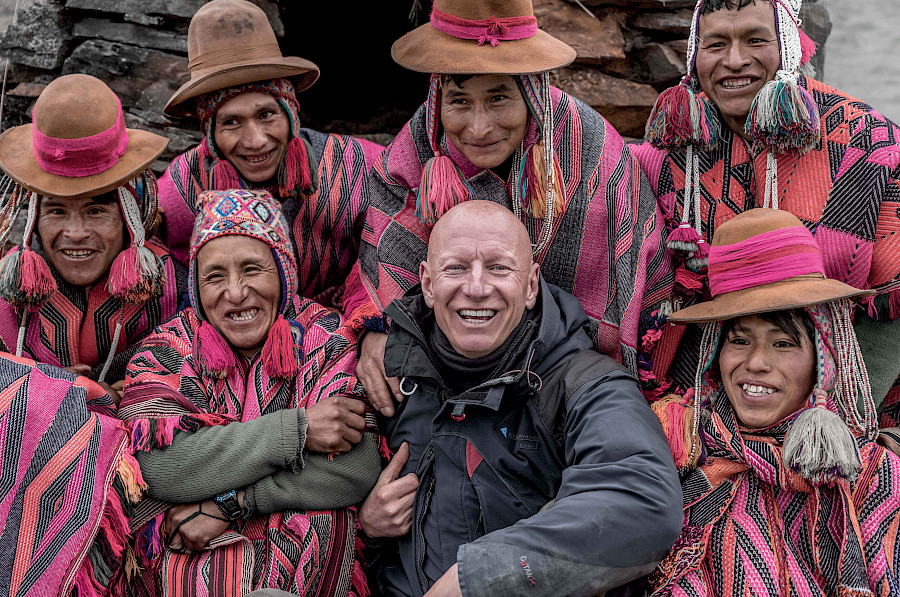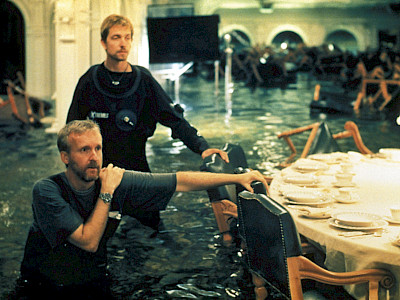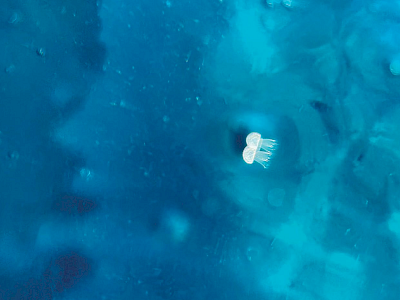
“The unexamined life is not worth living. Looking at yourself through the eyes of others is the most captivating journey of all possible", said Socrates. Wandering in search of self and the place in the world is part holiday, part prayer and part exploration. It's a great metaphor for our lifelong search for meaning. And that's what the modern pilgrim, nomad, "wandering philosopher" Jimmy Nelson dedicated himself to.

Your second book "Homage to Humanity" with a foreword by Donna Karan, was published in 2018... What are you working on now?
Our foundation supports the commitment of indigenous peoples to preserve their ancestral culture. These are, in particular, the tribes that I photographed. Our goal is to help these unique peoples.
How does your foundation help indigenous peoples?
This is perhaps the most important thing I have ever done. We visit indigenous peoples and convince them to unite in order to preserve cultural heritage, to adhere to their own culture. In addition, in developed countries, we promote three educational online platforms for children.
 |
 |
You talk about the culture preservation, but as soon as you break the boundaries of the community, you begin to assimilate – and to keep what was before your arrival intact will no longer be possible.
We try to save the basic values for the future. Everything is changing, it is inevitable. What I fear is that the world is becoming homogenous. People lose certain knowledge, give up the traditional way of life. Of course, many technologies make life easier, but you can't give up your cultural identity no matter what.
Your first book, "Before They Pass Away" was criticized for embellishing reality. As justification, you said that you are doing the same with the heroes of your photos as we all do for ourselves in social pages, highlighting our uniqueness. But don’t you think that we idealize ourselves in social networks, not because we feel important, but vice versa, from a lack of self-confidence?
Good question. I think each of us feel insecure deep inside. We, humans, are social beings, and we all want to be noticed to feel recognized and loved. Social networks for the most part give this recognition, and even love, in some way and this can also be good. If you analyze what I'm doing, it's largely a solution to the problem of invisibility. And it doesn't have to be pictures of me. I make other people noticed and in no case I do not belittle them or make comments. I just want to draw attention to the problem, because the rest of the world does not look at these cultures as valuable spiritual wealth. I believe that many of the indigenous peoples are more protected than us in a spiritual way because they have not lost their identity and their place in nature and in the world. They show me themselves because I convince them that they have something to show! This is my interpretation of their life and importance. Actually, the question should sound different: how much protected do I feel in comparison to them? Do I use photos to start a dialogue? The answer is: yes. But first of all, I use these photos as a mirror for myself.

A life-long journey began for Jimmy Nelson since childhood: his parents were traveling while he was studying and sometimes visiting them. Today, he has a huge portfolio of photo exhibitions across Europe. He worked as a photojournalist in Afghanistan, Pakistan, El Salvador, Nicaragua and Yugoslavia. He filmed the Ralph Lauren autumn-winter 2015/2016 advertising campaign at the Kakslauttanen Arctic Resort in Finnish Lapland. He traveled to 70 indigenous peoples and published two books. He was inspired by the ethnologist Edward Curtis, who at the beginning of the 20th century introduced American Indians to the world. He was the last to see them in traditional costumes. "Today there is a huge crisis of identity, and the indigenous peoples never lost it", says Jimmy Nelson. He never stops talking about it, also in new international language – the language of image. And he is such a narrator that all you'd want to do is listen to him speak…
You once said that it is a very personal journey in search of yourself. Did you find yourself?
As a child, I lived in many places, felt loved, and at some point everything changed for the worse. I didn't like that feeling. I stopped loving myself. Then I took a camera and started looking in others what I would like to feel myself. So I was making contact with the world. At the moment, I am on my way to myself – half of my life if behind, halfway through. I already realized that all the beauty is in the current process. I'm still travelling and looking. But and maybe I don't need to anymore...
What do you think is the cause of racism? Maybe a sense of insecurity, too?
Absolutely! We are talking about the lack of the ability to recognize the right of others on existing. We fear and project our fear on others, this is racism. It has no other reason than a very deep sense of insecurity.
How do you feel as a white man in today's Europe?
I don't understand how it matters or what gives me the fact that I am a middle-aged man with white skin. I feel this very acutely on exotic trips, because objective thinking is switched on there, but in Amsterdam, where I live, everything is very subjective. In addition, it is the most emancipated city. Here everyone can be whoever he wants – black, white, naked, anyone!
You take pictures of people of different races, have they ever asked about the color of your skin?
Never! I think we, developed countries, make too much of a deal of this. During travel, they ask me who I am, what kind of person I am. It doesn't matter how I look or what I'm wearing. I represent my soul, that's the most important thing.

Do they ask you about life in Europe?
No, and that's actually amazing. All the heroes of my photos are very busy with the present. We occupy ourselves with past and future, thoughts about other people and so on – and they are very focused on the moment. I return to them with a book of their photos published from last trip, but turns out they are not so much interested in how I see them. It seems that they are more occupied by how they feel. This is largely because they live in the present. We are divided, thanks to the image of social networks, we think about how we could look or how we would like to feel. This often prevents us from deepening into ourselves and understanding how we really feel. And they talk about themselves confidently – we feel beauty, we feel strength, we feel pride and we do not need this image of us from the outside to begin to appreciate what we have.
Lockdowns and prohibitions related to the spread of coronavirus are accepted in a civilized world very hard. What could indigenous peoples teach us in this situation?
Not to end up in this situation in the first place, I think. It is not generated by a virus, but by complete fear. The problem is not about the fact that coronavirus threatens humanity, but that we did, calling ourselves civilized people, cannot control the situation. I think quarantine was inevitable, given the huge number of people travelling millions of miles per hour. Anyway we all need to learn the lesson from this hard situation: to treat mother Earth and the world we live in with great respect. Indigenous peoples are more fortunate in something than us: due to their small number, remoteness and proximity to nature, they get its support, they are free from diseases with related technical progress. Unfortunately, we have lost our connection with nature, we are much larger - and we do not know anymore what this feeling is – simply to be. Therefore, we will most likely repeat our mistakes over and over again. And I really hope that the photos as a mirror will reflect our feelings, our insecurity. This mirror must teach us something. We live in a rapidly developing world, we have everything, but in many ways we have become impoverished.

Tell us about your life in Tibet. How old were you?
It was 35 years ago, I was 17, I graduated high school and ran away to Tibet. It happened because all my hair fell out of excessive stress and misdiagnosed medication. I wanted to find a place where I could feel safe, – I really missed that feeling… Tibet became a real adventure! It was closed for a long time to the world, and I was young and naive. So I did not know and expect anything .Probably that is why I discovered the whole world for myself there! Tibet is very far away, very high, it is very hot, very cold, very empty. But the locals always supported me, and I felt loved and protected. I spent two years there and It was a paradise on earth!
Did you want to come back?
I returned several times, but each time I was disappointed, because I did not feel the same feeling as the first time. Tibet continues to change not for the better due to the long occupation by China. Every time I come there, I feel very sad, because they were one of the most beautiful people in the world, but they were destroyed – today they are not free in their culture, and they cannot be called the happiest people in the world.

Where do the happiest people live, in your opinion?
I think it's the inhabitants of the Marquesas Islands, people from the cover of my second book. It takes four hours from Polynesia or five from Tahiti to fly there. They are happy because they live surrounded by magnificent nature, and they have a very rich culture that praises beauty. It’s not the external beauty – but the beauty of the soul. I think one of the reasons is also that they are very far from the rest of the world. They lead a very simple life, wake up at dawn and lie down at sunset. I'd like to be as free and happy as them myself.
What prevents us, the citizens of megapolises from feeling happy?
Everything is simple: we believe that we can control everything. We tell ourselves that we must work harder to earn money for shopping – this is the main goal. It is very difficult in the developed world to establish a connection with real wealth – not material: you can't buy it. We don’t understand that it is impossible to become happy by accumulating external objects, that feeling of complete happiness can only be achieved by internal wealth. I run from Amsterdam to remote parts of the planet and back just in an attempt to establish a connection with the world and be happy. Even if I don't communicate with these people, we have an invisible connection and I live in resonance with their lifestyle and thinking.

They say you take your old camera to all your trips…
It's designed like 50-year-old cameras, with furs. This is a large-format camera, 10 by 8, complexly engineered., but it’s slow. You can only take one picture at a time. That’s why you have to invest very much in the process of creating a photo. Modern kids wouldn’t understand it, recently, on a meeting with schoolchildren they couldn’t get it: why try so hard if you can just take lots of pictures at once with a last generation camera? Then I asked: what is the most important thing for you? And one boy replied: to kiss someone. Apparently he wanted to have a girlfriend… I said, imagine you have two options. First – tomorrow morning you can do all you want at the schoolyard – no restrictions. And another option: you can kiss only one girl that you like on the cheek in one second. Your choice? They all as one chose the first option. And I choose the second! I'm not as interested in a “kiss” as in its foreplay – a journey where everything is not so simple: you need to search, hunt, choose an angle... and still no one guarantees that the shot will be good. But you feel so many emotions during the search process! You have to be ingenious to take a single shot. But from this the chances of establishing a connection with those you shoot grow many times! Because you put your soul into what you're doing, just the way they do it.

How long did you have to wait for the right moment for the photo?
Sometimes up to two weeks. The feeling that every day you get closer and closer is like building a multi tier cake and photo is a cherry on this cake! — N



